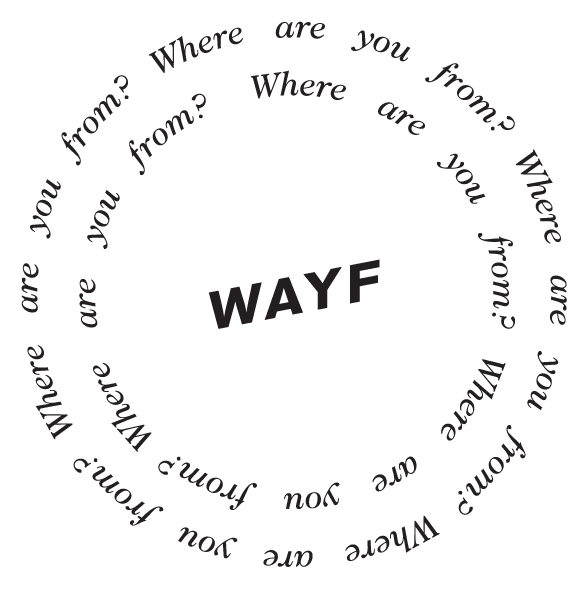Stella Justice-Allen
Growing up in Australia with a single mother who has three girls, including me and a half-brother, who all have curly hair, and skin that isn’t white. My siblings and I spent a lot of time explaining ourselves and trying to justify our appearance to strangers. Our mum was constantly questioned, as to others it was somewhat impossible for us to be considered a family. People are still shocked when they meet my mum, they fail to see that our resemblance may be deeper than our skin colour.
Luckily, growing up I was always content and confident with who I was. But as I grew, I also became more aware of people's perceptions of the Australian identity. I didn’t match up to people’s expectations of a typical ‘Aussie’, which defaulted me to ‘question mark’. The more I was questioned, the more it became apparent to me that people didn't believe I fit in as I am.
Up until then, I was unaware that I was anywhere more different than the rest of my classmates. At least once a week I’m asked ‘where are you from?’ to which I respond: Hi, how are you? I was born in Australia. I’m Australian. (as it’s usually one of the first things they ask) And then they say: No, but where are you FROM? As if they’re entitled to know. When they’re not satisfied with that answer I say: my dad is Jamaican.
My response to this sometimes challenges the way they think about identity. Because I try to emphasise that someone’s background doesn’t always determine who they are and to where they belong. I can appreciate people's interest in my ethnicity, and most people are probably unaware of the way they can make me feel by asking about it. Some people think that because they are complimenting me and admiring my hair, or saying how lucky I am to have my ‘beautiful’ skin, that it’s ok. But most of the time it's very confronting to have someone comment on your appearance that way, especially when it’s brought up mid-conversation or even more so, when it is the thing that starts the conversation. I also believe that being ‘different’ doesn't necessarily make you ‘beautiful’ and therefore being told you are beautiful because you are different is kind of condescending. I would prefer to be called beautiful based on my qualities, rather than my appearance.
As much as I love being Australian, it is incredibly frustrating and insulting to be continuously made to feel that I don’t belong because of my appearance. I have curly hair, brown skin and parents with of mixed heritage but I have formed my sense of self and identity in Australia, as it's where I call home. This sentiment is particularly significant for when we acknowledge First Nations peoples and their struggles. I celebrate being Australian by believing we live or are working towards becoming an inclusive community who are accepting and welcoming of each of our individual differences. Because no matter where we are from, we are all entitled to feel like we belong.



